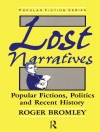Countries and regions in Central and Eastern Europe (CEE) have gone through several challenges. They went through totalitarian and authoritarian communist regimes, gained independence at the end of the 19th century, faced new economic and political challenges and rejoined Europe in a perspective of mutual development.
As different as they may be, despite recent populist movements, the CEE countries have much in common and regional policies can help the ‘forgotten places’ to explore their opportunities, supporting democracy, cohesion, and local economies in the European Union.
Grzegorz Gorzelak is a professor of economics, specialising in regional and local development policies and strategy building. He has collaborated with the World Bank, the OECD, DG Regio of the European Commission, several agencies of the Polish and Ukrainian governments, as well as regional and local authorities.
This is the fourteenth essay in the Big Ideas series created by the European Investment Bank.
Over de auteur
Grzegorz Gorzelak (Warsaw, 1949) is a professor of economics, specialising in regional and local development policies and strategy building. Between 1996 and 2016 he was director of the Centre for European Regional and Local Studies (EUROREG) at the University of Warsaw. He has coordinated several national and international research projects, most recently the ESPON TERCO project on territorial cooperation, and the FP7 project ‘Growth – Innovation – Competitiveness: Fostering Cohesion in Central and Eastern Europe’ (GRINCOH).
He has collaborated with the World Bank, the OECD, DG Regio of the European Commission, several agencies of the Polish and Ukrainian governments, as well as regional and local authorities.
Grzegorz Gorzelak has published (as author and editor) over 60 books (several of them in English) and over 260 articles.
He is Editor-in Chief of a quarterly scientific journal ‘Studia Regionalne i Lokalne’ and was formerly president of the Polish Section of the Regional Studies Association.












